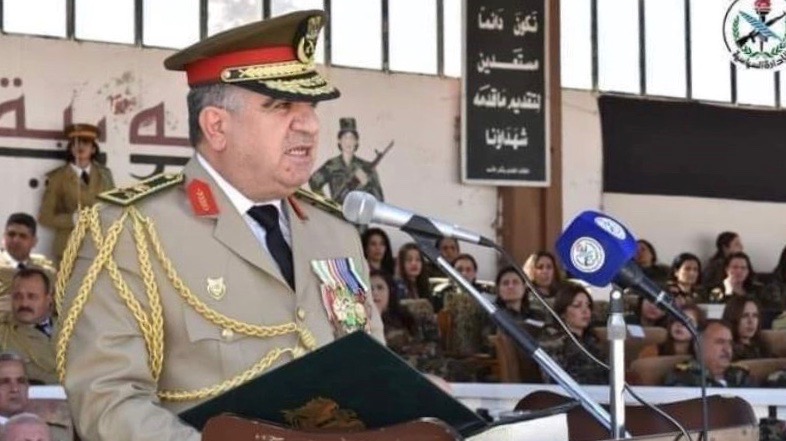The Syrian defense minister, along with the head of the country’s intelligence agency, held direct talks with their Turkish counterparts for the first time in 11 years in Moscow on Wednesday, December 28.
Syrian Defense Minister Ali Mahmoud Abbas and intelligence chief Ali Mamlouk, as well as Turkish Defense Minister Hulusi Akar and the head of Turkey’s National intelligence organization (MIT) were hosted by Russian Defense Minister Sergei Shoigu.
According to a press note issued by the Russian defense ministry after the meeting, the trilateral talks “focused on solutions to the Syrian crisis, the refugee issue, and joint efforts to battle extremists on Syrian territory,” TASS reported.
Although representatives of the Syrian and Turkish governments have met at various multilateral forums, including meetings under what is commonly known as the Astana Process, the meeting in Moscow was the first time since the war began in Syria in 2011 that defense ministers of both countries met. As per the Russian press statement, all three countries have agreed to hold similar talks in the future.
Turkish President Recep Tayyip Erdoğan has already hinted that he wants to meet his Syrian counterpart Bashar al-Assad soon, and has asked Russian President Vladimir Putin to organize a trilateral meeting for the same.
The Syrian Defense Ministry also described the meeting as “positive” in a statement issued on Wednesday. However, Syria has recently reiterated at the UN that real peace in the region requires a comprehensive approach by the international community to end all kinds of foreign occupation and interventions in Syria.
Turkish role in Syrian crisis
The talks on Wednesday mark a significant moment in the Syrian crisis as Turkey has been held responsible for aiding the anti-government opposition fighters since the beginning of the war. Turkey has also launched several invasions into Syria against what it claims to be terrorist threats from Kurdish People’s Protection Units (YPG) forces. YPG forces are part of the Syrian Democratic Forces (SDF), which controls a large part of the territory within Syria and is an ally of the US forces.
Turkey has occupied a large part of north-eastern Syria and has threatened more attacks in the future. Russia and Iran, two participants in the Astana talks, have objected to the proposed Turkish invasion in Syria. Turkey has, however, already been launching air and artillery attacks into the border regions of Syria for months.
Turkey, which has over three million Syrian refugees, is also seeking to find a solution to the issue before national elections in the middle of next year. The presence of Syrian refugees in the country may hamper Erdoğan’s chances of retaining power. In 2019, Erdoğan had begun an invasion of Syria and stated that one of the objectives was to create a safe zone to relocate Syrian refugees. Turkey halted the invasion only after active intervention by Russia.
Turkey’s support to Syrian opposition forces has prevented the Syrian government from regaining control over their last bastion in the north-western Idlib province. Russia, a close ally of President Assad, has often raised the issue of continued Turkish support to rebels in Idlib as a violation of Erdoğan’s promises.





